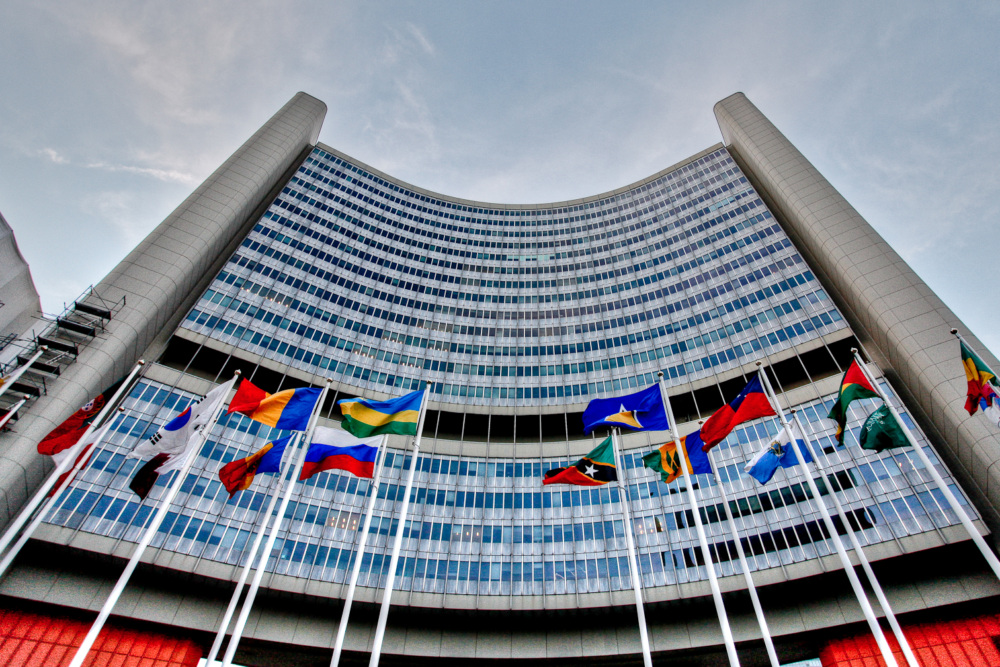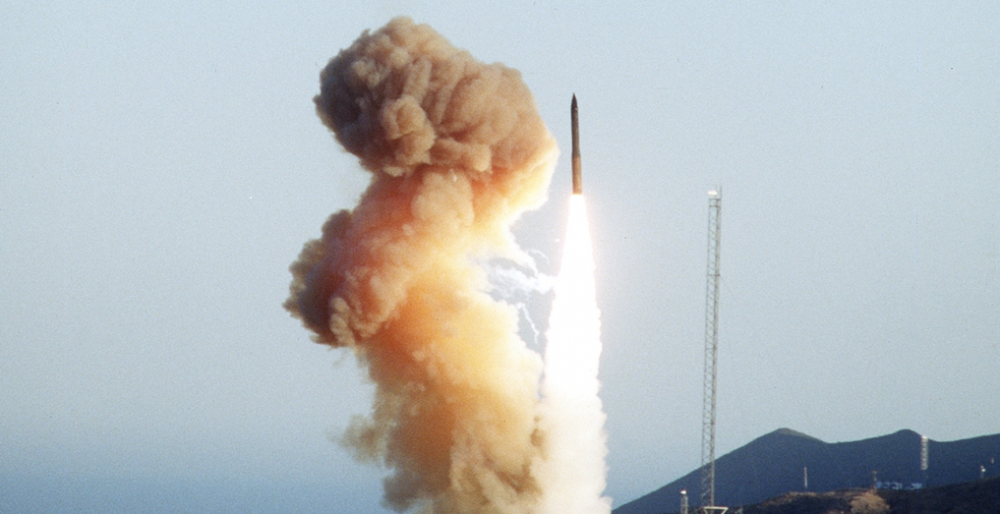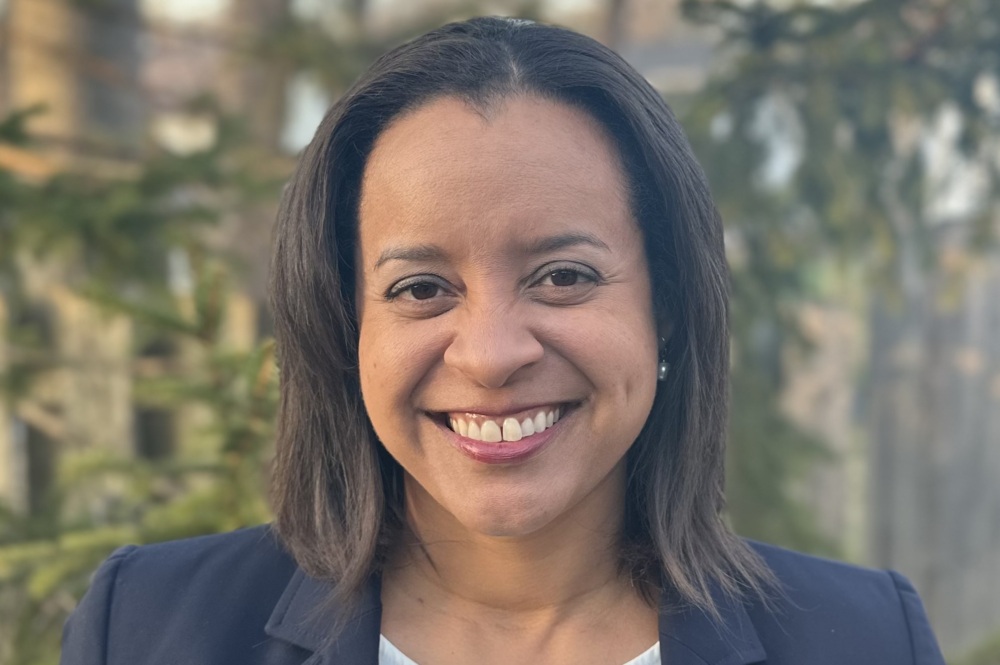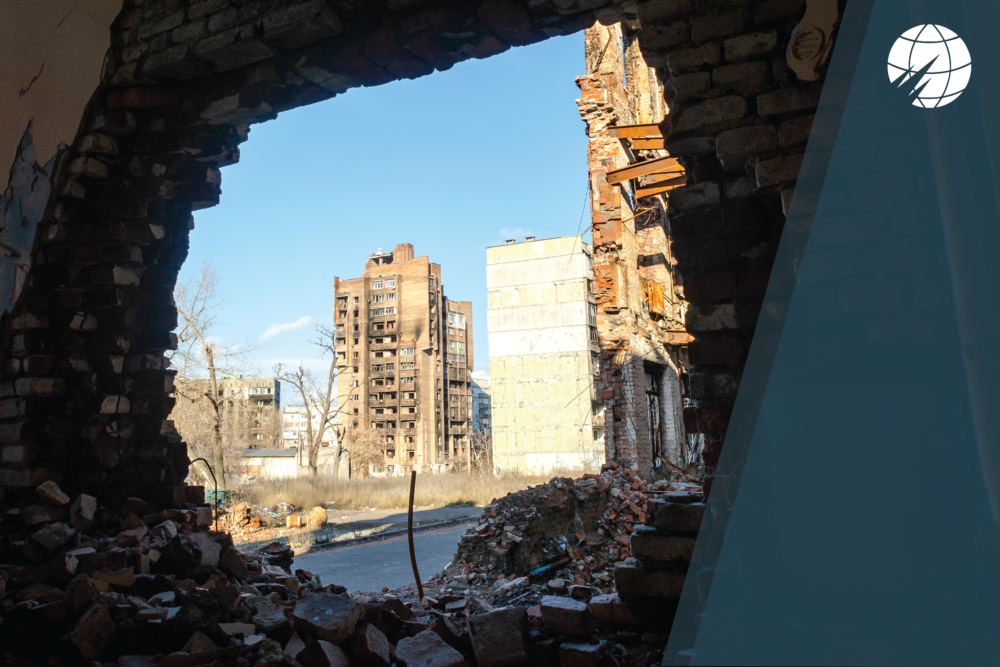
Time to Change Course on Nuclear Security
Governments should use the 2024 International Conference on Nuclear Security (ICONS) to reaffirm their commitment to preventing nuclear catastrophe.
Atomic Pulse
This post was written by Luke Radice, an intern with NTI’s Global Nuclear Policy Program. Originally from Boise, Idaho, he graduated from Claremont McKenna College in 2019 with dual honors in International Relations and History.
Nuclear dangers are higher today than at any point since the height of the Cold War, according to some of the nation’s leading nuclear policy experts and senior statespeople who spoke as part of a May 21 Commonwealth Club webinar on “Reducing Nuclear Weapons: Stopping the War that No One Wants.” Former Secretary of State George P. Shultz , former Secretary of Defense William J. Perry, former Deputy Secretary General of NATO Rose Gottemoeller, former Governor of California Jerry Brown, and current UN Under-Secretary-General and High Representative for Disarmament Affairs Izumi Nakamitsu discussed the importance of extending the New Strategic Arms Reduction Treaty (New START), the impact of novel technologies on international stability, the value of the Open Skies Treaty, the delayed Nuclear Non-Proliferation Treaty (NPT) Review Conference, and the importance of dialogue and cooperation with adversaries.
Shultz, who served under three Republican presidents, focused on today’s nuclear dangers and expressed concern about the elimination of valuable arms control treaties and dialogue. He reinforced the importance of extending New START past its early 2021 expiration date, extension, saying that “the Russians have said that they’re willing to extend it… so what’s the matter with us? Let’s get our own government going and do that.” Shultz also spoke on the importance of engaging members of Congress on nuclear policy and security. In April 2019, Shultz co-authored a Wall Street Journal op-ed with Perry and NTI Co-chair Sam Nunn suggesting that Congress appoint a “high-level observer group” to consult regularly with the executive branch on arms control initiatives. (Read it here)
Perry focused on the dangers of nuclear miscalculation or accident, and discussed how advanced technologies exacerbate the threat. He noted that much of the novel technology being developed, counter-intuitively, “only aggravates the problem (of nuclear miscalculation), rather than easing it.” He further laid out concrete steps that could be taken to reduce this danger, namely ending the sole authority of the president to launch nuclear weapons; ending the nuclear policy of “launch on warning,” and phasing out nuclear weapons that are “especially susceptible to false alarms.”
Izumi Nakamitsu, the only currently serving official on the panel, expressed concern about “diminishing trust, diminishing transparency, (and a) greater reliance on military instead of diplomatic solutions.” She made strong calls for a return to confidence- and security-building measures and noted that at the United Nations today, arms control isn’t viewed as idealistic – rather, it is seen as a necessity. She called the NPT the “best mechanism to facilitate the achievement of these goals” and “a pillar of international security.” She also offered concrete steps toward reducing the risks of nuclear use, calling for countries to “reaffirm their commitment to the NPT and its values” and encouraging a joint reaffirmation of the Reagan-Gorbachev statement that “a nuclear war cannot be won and must never be fought.”
Gottemoeller, who was the chief U.S. negotiator of New START, emphasized the Treaty’s importance to international stability and the urgent need to extend it, noting that it caps U.S. and Russian arsenals at 1,550 deployed strategic weapons each and “ensures we aren’t facing an unpredictable nuclear opponent nor a destabilizing arms race.” Under the terms of the treaty, which entered into force in 2011, it can be extended for up to five years from its 2021 expiration date. Gottemoeller acknowledged that the work of arms control isn’t finished, saying that “the numbers need to be further reduced, and other players such as China need to be involved as well.” That’s why extending New START is so important, she added, since “in order for negotiators to succeed, we need a stable and predictable basis on which to talk.” To conclude, she asked “fundamentally, do we want to face more nuclear weapons, or do we want to keep reducing them?” And she warned of a “rapid deterioration in our security environment” should New START be allowed to lapse.
Brown drew from his long political career when discussing what he saw as the most pressing threat to nuclear stability – a “complete absence of dialogue” between nuclear powers. He noted that, “in Congress, there is very little interest in nuclear weaponry, and even less interest in dialogue with Russia,” and “we need to find ways to bring discussions about nuclear weaponry back into the mainstream.” With respect to talking with adversaries, he added, “you cannot punish people by not talking to them – when there is danger, and when there are things you don’t like, that is exactly the time to talk to them.”
In the question and answer session, the experts discussed at length how to raise public awareness on the topic and promote the importance and value of working on reducing existential nuclear threats. They agreed that it may be up to a new generation to bring momentum to renewing efforts to tackle global nuclear dangers.
Note: The views of the speakers do not necessarily represent the views of NTI.
Sign up for our newsletter to get the latest on nuclear and biological threats.
Governments should use the 2024 International Conference on Nuclear Security (ICONS) to reaffirm their commitment to preventing nuclear catastrophe.
For Black History Month, Jupiter Huang, NTI’s communications intern, had the opportunity to ask Tiffany Blanchard-Case, director of the Office of Nuclear Material Removal and Elimination at the National Nuclear Security Administration (NNSA), about the importance of mentorship and her advice for young people interested in working on nuclear issues.
What does the future hold for Ukraine’s survival, Putin’s grip on power, and the shape of the international order?


